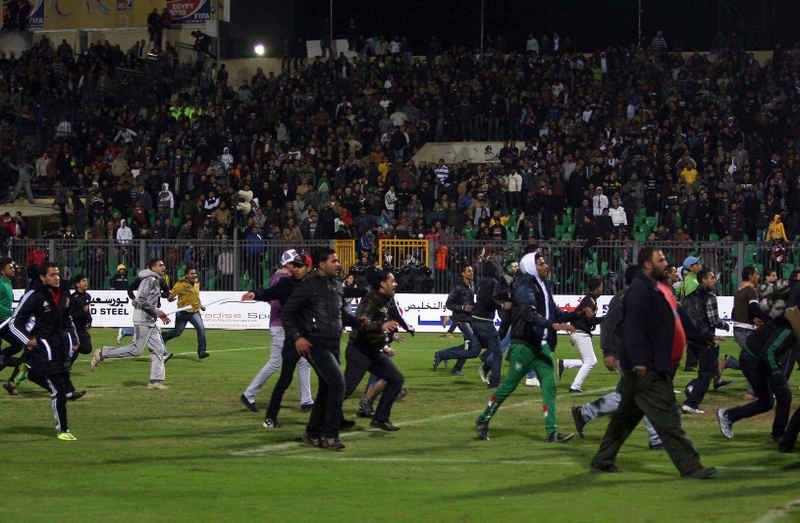CAIRO: Men and women sit on empty gas cylinders in a queue that extends down the street in the district of Warraq, as they wait for a truck carrying a fresh supply of butane gas.
They rush to a nearby street as soon as they hear that a truck arrived there, scrambling to get their hands on the essential cooking gas.
“We [never] know where and when the truck arrives, explained a 50-year-old resident of Warraq. “What we do is we wait at random places [hoping the truck] would pass by and help us, he said, “yesterday we wasted 12 hours waiting for the truck.
Another 25-year-old girl said that after waiting several hours, she was unable to take home a butane gas cylinder because they ran out.
War over butane
Butane gas cylinders are typically filled in factories then transported to warehouses. The cylinders are then sold to distributors who deliver them to people’s homes.
However, at the peak of the crisis, butane gas cylinders were sold off trucks.
“We take the cylinders and pray to Allah that they are [safely sealed], explained one Warraq resident.
The shortage in butane has led to the emergence of a black market that hiked prices from LE 10-15 to LE 35-40 per unit.
“At times, we would buy the cylinder for LE 60 at the black market, explained another woman who preferred to remain anonymous. “My husband has limited income, are we supposed to pay now for our children’s private lessons, or for gas cylinders?
“We do not have food because we do not have fuel, another burka-clad woman in Warraq said.
“We are suffering she went on. “Where is the law?
Last month, Mohamed Tawfik Al Sawafey, 43, died in Gharbiya when clashes erupted in a queue outside a butane gas cylinder warehouse. Reports suggest that his body was discovered only after the crowd had dispersed.
In addition, earlier this month a plumber in Imbaba died in a fight with a truck driver’s assistant after he jumped on the truck to take one of the cylinders.
The independent daily Al-Masry Al-Youm reported that in Daqahliya, Khaled Magdy Rizk also received a head injury after a truck driver allegedly chucked a gas cylinder at the crowd.
A Jan. 8 protest outside warehouses in Gharbeya left a number of people injured. Clashes also broke out in Giza, Sixth of October and Helwan governorates over gas cylinders.
In mid February, citizens gathered in front of distribution point causing elderly people to faint. Security forces interfered to break up the clashes, making several arrests.
However, some explain that the situation improved after police officers interfered.
“Violence decreased, a Warraq resident said. “If you’d come here two days ago you would have ended up with an injury.
In Tahrir Square, calm returned to gas cylinder outlets, with an ample supply available.
The vendor, who refused to be named, said that while there were riots in front of his outlet earlier this month, things have returned to normal.
A light at the end of the tunnel
Several governorates reported a slight improvement in the butane gas cylinders’ crisis after the supply of cylinders in distribution outlets was increased.
“If it weren’t for the government’s interference we would have still bought cylinders from the black market, explained a 45-year-old man. “Today I can see none of [black market cylinders], but three days ago there were tens.
The General Petroleum Authority announced that it would pump an additional 100,000 cylinders, raising the available quantity to 1.2 million cylinders a day.
Khaled Mostafa, Cairo Govenorate spokesperson said that the crisis has been less intense in Cairo.
He went on to explain that Egypt is facing challenges with districts on the capital’s outskirts such as El-Marg and Helwan as they get hold of cylinders from the capital’s share.
According to a Bloomberg report, Egypt’s butagas consumption increased to 32 million cylinders last December from 26 million during the five months before.
According to the Ministry of Social Solidarity around 55 percent of all gas cylinders sold in the country are imported; but as a result of the global financial instability there has been a slight drop in imports.
However, the Egyptian General Petroleum Corporation (EGPC) began increasing butane gas imports from Saudi Arabia and Algeria after the riots began, though no delivery dates were given.
Al-Masry Al-Youm claimed that sources at the Ministry of Petroleum said that the severe shortage was a result of harbor closures triggered by bad weather.
